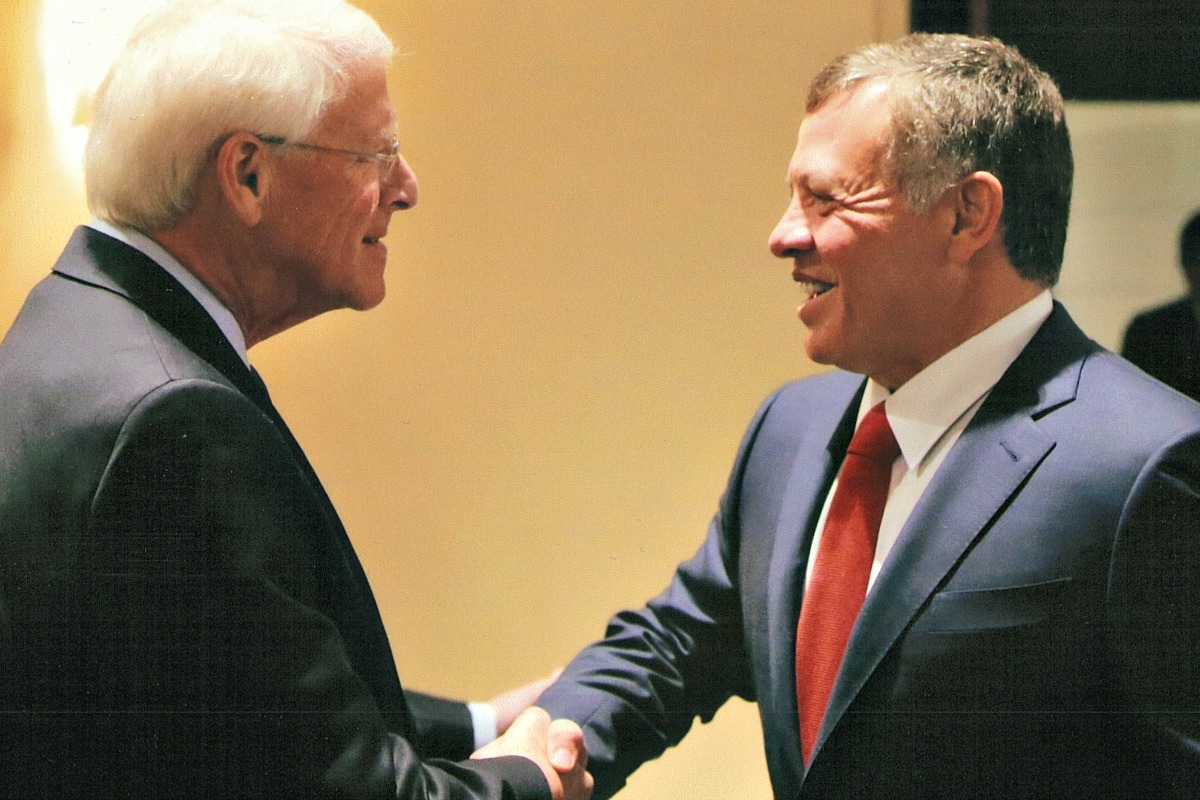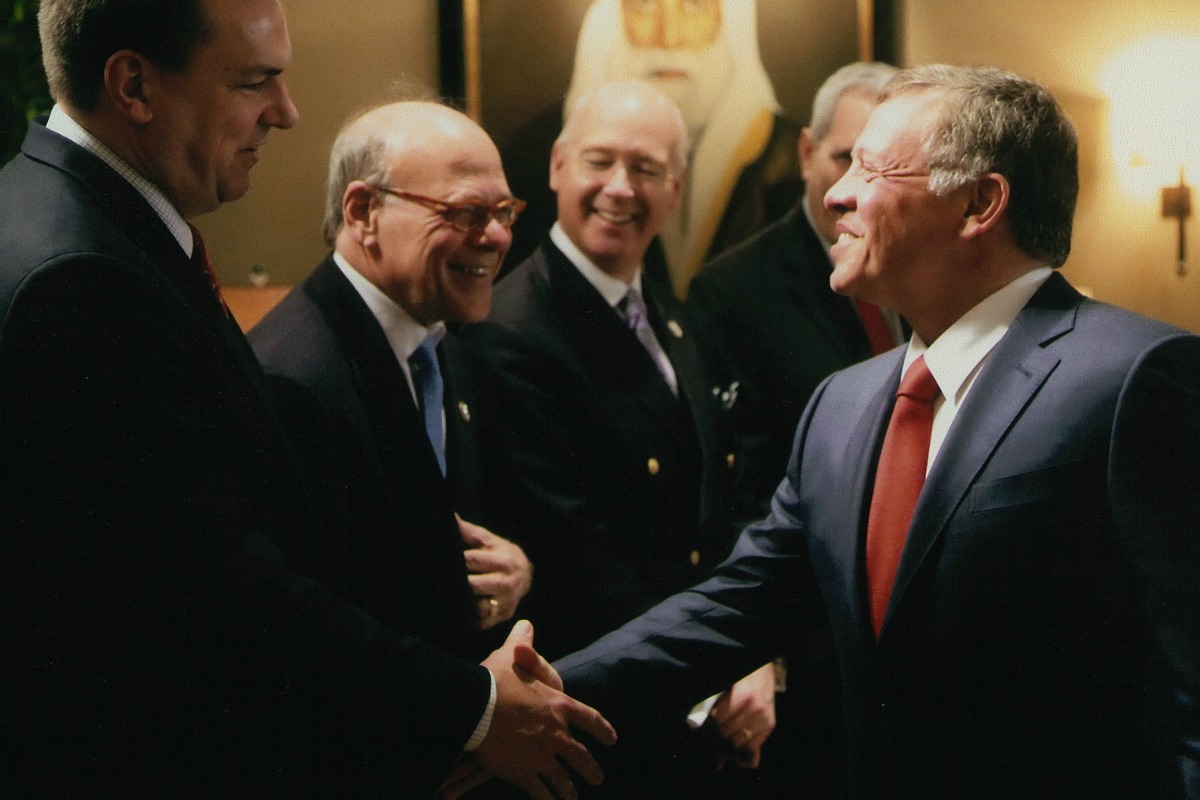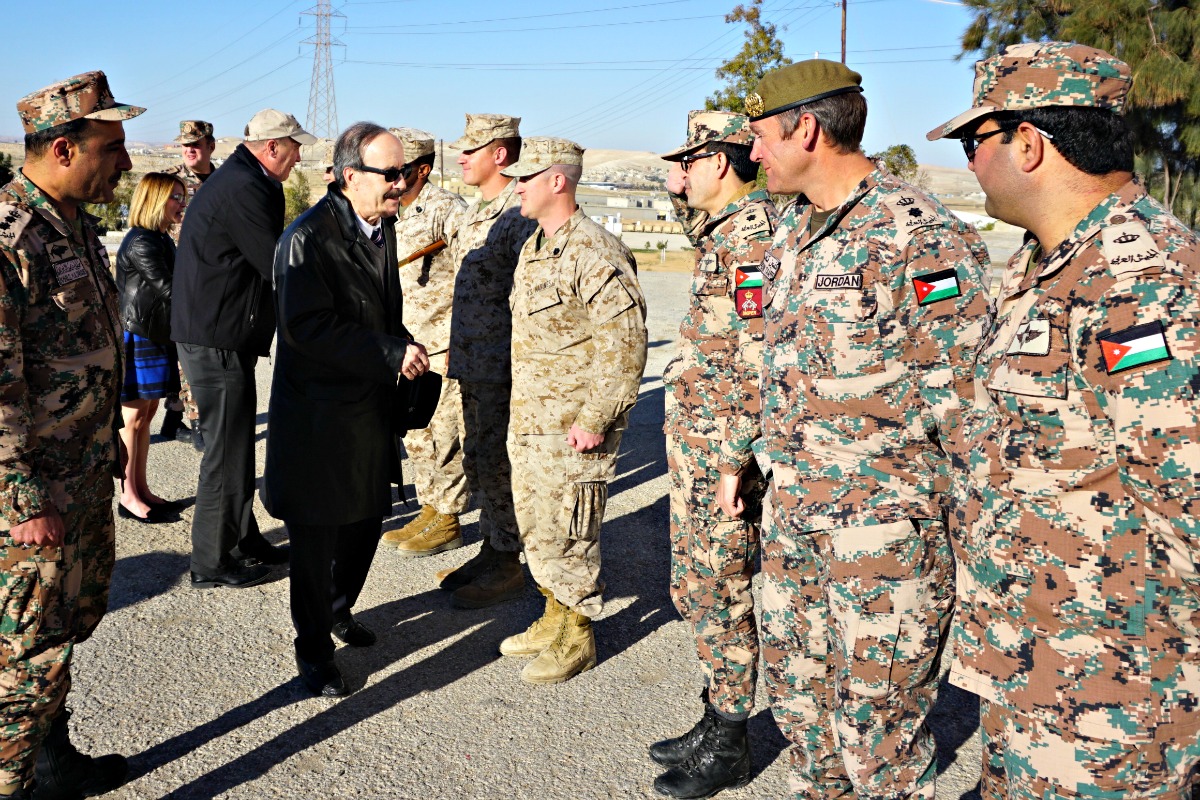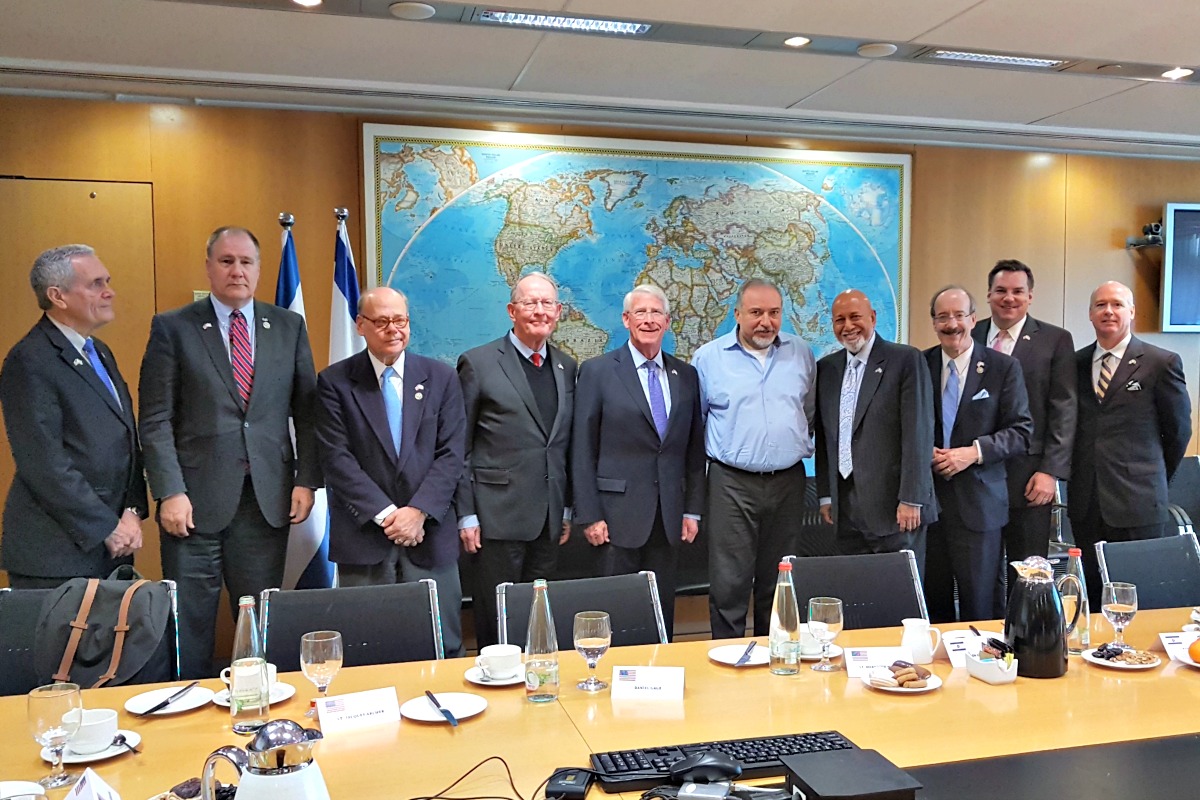Helsinki Commission Chairman Senator Roger F. Wicker (MS) led a bicameral and bipartisan delegation of nine Members of the U.S. Congress to Jordan and Israel from February 19-22, 2017 before traveling to Vienna for the Winter Meeting of the OSCE Parliamentary Assembly. This was the first major U.S. Congressional delegation to visit Jordan and Israel, two of the United States’ strongest Middle East allies, since the start of the 115th Congress and the inauguration of President Donald J. Trump. As such, it manifested the United States’ lasting and bipartisan commitment to these partnerships that are vital to defending American interests overseas and at home.
In addition to Senator Wicker, the U.S. Delegation included Helsinki Commissioners Rep. Alcee L. Hastings (FL-20), Rep. Robert B. Aderholt (AL-04), Rep. Steve Cohen (TN-09), and Rep. Richard Hudson (NC-08), as well as Senator Lamar Alexander (TN), Rep. Eliot L. Engel (NY-16), Rep. Lloyd Doggett (TX-35), and Rep. Trent Kelly (MS-01).
Steve Cohen (TN-09), and Rep. Richard Hudson (NC-08), as well as Senator Lamar Alexander (TN), Rep. Eliot L. Engel (NY-16), Rep. Lloyd Doggett (TX-35), and Rep. Trent Kelly (MS-01).
In Jordan, the delegation met with King Abdullah II and reviewed the full horizon of threats and opportunities that lie ahead for Jordan and the United States, particularly concerning the Israeli-Palestinian conflict, Iran, Syria, and the fight against terrorism. The King also shared his views about the economic and social challenges facing Jordan in the near- and medium-term, including slow economic growth, high unemployment, and a massive refugee population.
Members of the delegation also had the opportunity to visit a Jordanian military unit and meet with the unit’s United States and United Kingdom military trainers to witness the depth of US-Jordanian cooperation and integration. The delegation also consulted with leading members of Jordan’s cabinet, parliament, business community, and civil society.
In Israel, the delegation further discussed regional dynamics with Defense Minister Avigdor Lieberman, Deputy Minister for Diplomacy Michael Oren, and Ministry of Foreign Affairs Political Director Alon Ushpiz.
In their capacities as U.S. lawmakers, members of the delegation also met with their counterparts from the Israeli Knesset, including members of the Foreign Affairs and Defense Committee, to discuss the role of legislative institutions in fostering effective foreign policy.
In each location the delegation held consultations with the United States’ leading diplomatic and military officers to learn about the work of the United States interagency to strengthen our foreign government partners, communicate our values, protect our personnel overseas, and defend the homeland.
Jordanian and Israeli interlocutors commonly stressed the importance of reinvigorating American leadership in the region to address the emergence of power vacuums where pernicious influences thrive. The delegation heard concerns in both countries about the impact of Russia and Iran’s ascendant influence in regional conflicts, particularly Syria. These officials further emphasized the need for the US to shape a coalition of moderate regional countries that can challenge the reach of terrorist groups, radical ideologies, and Iran’s destabilizing foreign policy. 
The U.S. delegation reaffirmed the United States’ commitment to Israel’s security, which faces threats from virtually every direction on a daily basis. Delegation members also elicited Jordanian and Israeli officials’ views about recent developments in the Israeli-Palestinian conflict and the prospects for peace, particularly the possibility of achieving a two-state solution. Neither Jordanian nor Israeli officials expressed optimism about the near-term feasibility of achieving a final status agreement and establishing a Palestinian state. Although they emphasized different obstacles to achieving peace, both sides acknowledged the significant challenge posed by weak Palestinian leadership and institutions.
Members of the delegation also heard about the importance of U.S. foreign aid to Jordan and Israel, two of the world’s largest recipients of American foreign assistance. The delegation heard how such assistance fosters closer coordination and forges lasting partnerships that are unrivaled by the cooperation offered by other regional stakeholders, thus representing a critical mechanism of US influence.









